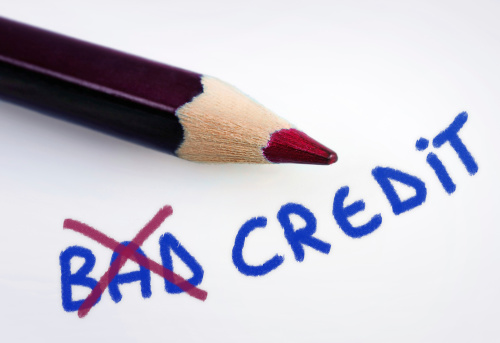By Brooke Niemeyer
It may be challenging to get a small business loan if your credit is not as great as it could be, whether because you made some financial mistakes or you simply have no credit history, which lenders see as a red flag. But that doesn’t mean it’s impossible for someone with bad credit to get a loan.
Here are some tips to help you secure that small business loan you’re hoping for.
1. Wait and Improve Your Credit
You have your business idea crafted and be ready to take that plan from paper to reality. But you may ultimately save yourself time and money by waiting until your credit has improved. While there are no secrets on how to build credit fast, there are some things you can do to help improve your scores.
You can look at copies of your credit reports (which you can get for free once a year when you visit AnnualCreditReport.com) and make sure everything is accurate. If you discover any problems, you can dispute these errors, which may ultimately improve your scores. You can also reduce your credit utilization ratio by paying down debts.
Although you may be tempted to apply to every loan you think you have a chance of securing, try to refrain from doing so — each time you do, you prompt a hard inquiry on your credit, which may negatively affect your scores.
2. Consider Alternative Lenders
Traditional loans may not be an option for you, as many lenders won’t give a loan to someone they don’t believe can repay the money. However, there are many alternative lending options you may want to consider. This can include everything from smaller lending platforms to crowdfunding sites.
“If you don’t have a saving to use as seed money, or strong financial backers to fund your startup investment, finance your business with a funding campaign on Kickstarter or a similar platform,” Angelique Pivoine, CEO of Good Thinking Agency, which helps small businesses draw media attention, said. “I’ve seen people raise more than enough money [this way] for whatever their needs.”
Something to keep in mind if you go with a non-conventional loan is that you may be held to different standards than you would with a conventional loan. This can include a shorter term, higher interest rates and other fees. Make sure you read all the fine print and are realistic with the repayment terms you’d have to agree to before signing on the dotted line.
3. Get a Partner
You may also decide to partner with someone else as you build your business. This person may have a better credit profile, and therefore a better chance at securing a loan on behalf of the business.
“There are always venture capital firms who invest in budding businesses, but they usually take a big equity stake in the business,” said Brian Davis, the co-founder of Spark Rental, a real estate investment blog.
If you decide to go this route, make sure you document the agreement between you and your business partner including details as to how the loan repayment will work and what the funding can and should be used for.
4. Ask for Help
There are many resources available for entrepreneurs just starting out.
Andrea Roebker, the regional communications director at the U.S. Small Business Administration (SBA), advised entrepreneurs to “work with and/or contact a local SBDC or SCORE counselor that can advise on a variety of ways, including how to improve [your] credit, the business’ financials, etc., as well as the variety of funding options available.”
You may also want to consider talking with others who are already in the space you’re looking to work in or who started their own company.
Brooke Niemeyer is a reporter and editor for Credit.com. She writes about a variety of personal finance topics, with work featured on CBS, TIME, The Huffington Post, Yahoo! Finance, MSN, and others. She has a Master’s degree in Journalism from New York University and was a reporter for NBC before joining the Credit.com team. You can follow her @RNYBrooke.







